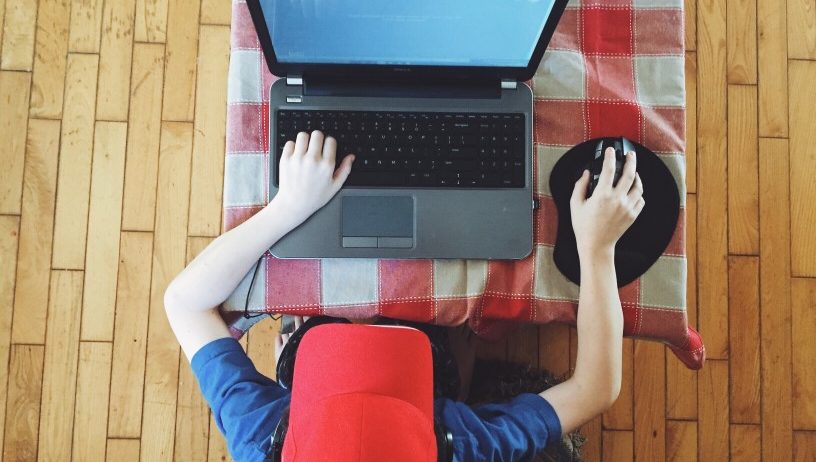Homeschooling and remote learning are on a collision course- or maybe they have already crashed into each other. Traditional homeschoolers report that they choose to homeschool because they feel that they can provide their child with a better education than public or private schools. Some parents choose to homeschool for religious or cultural reasons, and many others choose homeschooling due to a negative school environment, which in 2020 includes concerns about COVID-19. These two sets of parents often have different expectations for what and how their kids will learn and what their role will be as a teacher.
While traditional homeschooling parents realize that they need to take on the role of teachers, COVID-19 homeschooling parents may not anticipate the degree to which their kids need support to learn remotely. However, once their kids start with school at home, both parents of long time homeschoolers and those of COVID-19 remote learners, may begin to recognize that their kids need executive functioning skills to succeed in distance learning. Skills such as sustained attention, working memory, and organization are crucial for kids who are attempting to master material outside of the traditional classroom.
While some parents are very involved in their child’s homeschooling, most homeschooled students routinely engage in independent, self-directed learning. Without the structure of the traditional classroom, students new to remote learning may not have the cues needed to understand directions, avoid distractions, and be organized. Without these executive functioning skills, many homeschooled students flounder. Unfortunately, most homeschool and remote learning curriculum do not consider these to be important skills, and do not teach them
My contention is that teaching these core executive functioning skills are needed to succeed in homeschooling and remote learning. Rather than an afterthought, basic executive functioning skills should be taught to every remote learner. These skills (task initiation, sustained attention, task persistence, organization, time management, flexibility, and working memory) are needed to maximize what kids can learn from traditional school. In the case of homeschooling and remote learning, the extra responsibility of independence and self-direction make these skills even more crucial for any level of success. In the traditional classroom (especially in the elementary years) teachers are able to compensate and support kids with weak executive functioning skills. However, in any form of distance learning (with the exception of parent-lead or small pod-based classrooms) students are expected to do more on their own. They must decipher what is expected of them, learn how to get started on assignments, avoid getting lost in distractions at home or on their screens, work to complete tasks, organize their materials, and manage their time. Without these skills, remote learners are simply remote, not learning.
While there are many executive function skills that will benefit remote learners, we suggest starting with these three executive function skills listed below for homeschoolers and remote learners. Mastering these executive functions will give remote learners the best opportunities to become successful learners.
Avoiding screen-based distractions/sustained attention. Since long before the COVID-19 pandemic, parents have been concerned about their kids doing homework on the computer because it’s so easy to get caught up checking on social media, surfing the web, or playing a video game. Remote screen-based instruction is seven or more hours per day on the screen, rather than the hour that it formerly took to complete homework. Now it is seven times as difficult to avoid screen-based distractions. Parents and their kids should discuss employing some technologies that prevent kids from getting distracted online such as StayFocused or learn about other strategies that can make it harder to be distracted by the screen. Rather than think (unrealistically) that a student will totally avoid screen-based distractions, suggest that they give themselves regularly scheduled breaks 3 or 4 times per day to check social media and other non-academic screen time.
The ability to follow directions/working memory. In order to follow directions, a student must first be paying attention. Often they will need to use their working memory skills in order to keep directions and information in mind and then be able to apply it to their work. Following directions is much easier if teachers do more than say directions but also have written instructions in a place that is readily accessible to the student. The student should also be taught to write down directions, be encouraged to ask for clarification and have methods to communicate with peers when they don’t want to ask for help directly from the teachers.
Skills for getting work done/organization. In the world of remote learning, the backpack that one takes to school is no longer needed. However, a virtual backpack is sometimes even more difficult to organize. Instead, organizational skills require knowledge of the technology that is being used in the virtual classroom. For example, students are encouraged to develop expertise in using built-in calendars as tools for organizing and planning for assignments. Using Google Docs, Google Classroom, and Google Drive to put together information, including links and images to components of schoolwork can be important. Organizing one’s desk to work effectively may also need to be taught and supported. All of these skills are more difficult to do in remote learning because teachers are not there to help the students directly with this. However, teachers who are adept at using their virtual classrooms can create structures that can help kids. Parents are also encouraged to become experts in navigating their child’s virtual classroom platforms so they can assist with organizational skills.




